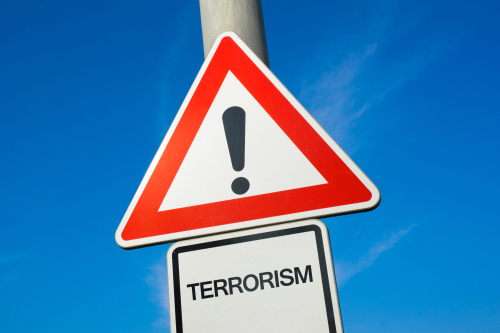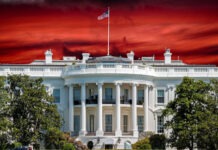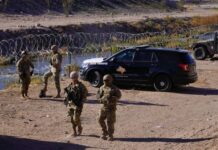
As tensions escalate in the Middle East, American intelligence officials have raised alarms over the potential threat posed by the Lebanese Hezbollah terrorist group. The concerns are not unfounded; recent reports suggest that Hezbollah, with its sophisticated network and Iran’s backing, could be planning strikes against American interests both abroad and on U.S. soil.
The surge in violence in the region has been marked by a significant number of attacks on U.S. forces in Iraq and Syria, with a reported 127 incidents since mid-October 2023. This uptick in aggression underscores the volatile environment in which American personnel operate overseas and highlights the persistent danger of terrorism that extends beyond the battlefield.
Wouldn't have this type of warning if Biden kept the border under control.
US intelligence officials warn Hezbollah may target mainland US amid war in Israel: report https://t.co/1qV4EVWL2X #FoxNews
— R T (@RDog861) January 11, 2024
Despite Hezbollah’s restraint from major assaults on Israel or U.S. troops in the latest conflict, their history of targeting Americans is well-documented. Past activities include surveillance of American and Israeli targets in Panama and New York City by U.S.-based operatives in 2011 and 2012. The infamous 1983 attack on the U.S. embassy in Beirut, which claimed 63 lives, remains a stark reminder of the group’s capacity for destruction.
In light of these threats, the State Department has taken proactive measures to bolster security at the U.S. embassy in Lebanon, aiming to protect diplomats from potential attacks. The increased vigilance reflects the gravity of the warnings issued by intelligence officials regarding Hezbollah’s capabilities.
The intelligence community is warning that Hezbollah may target Americans overseas or even attack the US. Hezbollah is financed by Iran.
Of course Biden refuses to hold Iran accountable.
Does the unthinkable need to happen before he acts?
— JohnGalt 🇺🇸🇮🇱 (@JohnJGaltrules) January 11, 2024
Hezbollah’s leader, Hassan Nasrallah, has publicly warned of strikes against U.S. bases in the region, holding America responsible for the war in Gaza and shielding Israel from international condemnation. These statements, coupled with FBI Director Chris Wray’s warning about the rise of violent extremism, paint a concerning picture of the security landscape facing the United States.
Domestically, there is growing concern that open borders may facilitate the entry of Hezbollah sleeper cells into the country. An internal memo from the CBP San Diego field office highlighted the risk of jihadists, inspired by the conflict between Israel and Hamas, attempting to enter the U.S. through the southern border. This possibility adds another layer of complexity to the nation’s counterterrorism efforts.
Internationally, the effectiveness of global cooperation in combating terrorism was demonstrated when Mossad, Israel’s secret service, assisted Brazilian law enforcement in thwarting planned Hezbollah attacks in Brazil. This successful operation, known as “Operation Trapiche,” led to the arrest of individuals linked to the terrorist group and prevented potential attacks on the Brazilian Jewish community.
The current climate demands unwavering vigilance and robust intelligence-sharing among nations to preempt and prevent any acts of terror. As the threat landscape evolves, the United States remains steadfast in its commitment to safeguarding its citizens and interests from those who seek to do harm. The message is clear: while the risk of a Hezbollah attack on American soil is a matter of concern, the nation stands ready to confront and counter any terrorist threats that may arise.












